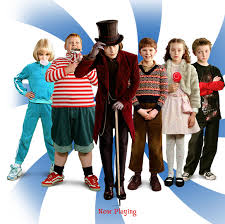Service is a major tool of recovery. But it can also be dangerous.
Mood music for this post: “Serve the Servants” by Nirvana:
[youtube=http://www.youtube.com/watch?v=jtB6gEmr6ZY&hl=en_US&fs=1&]
Last night was one of service. I drove down to Salem State College to talk to graduating seniors about their portfolios and resumes. It was the least I could do, after all that college did for my career.
It was energizing to talk to the students, who are full of hope and ambition, not yet jaded by the throat-cutting ways of corporate America. And it was good to see Judi Puritz Cook, Ellen Golub and Robert Brown. Ellen was adviser to the Salem State Log while I was there. We were among her most trouble-making, rebellious charges. I’m proud of this.
After that I dropped by the home of old friends. Their son is going through a lot of the turmoil I went through as a kid, and I’m trying to help him out by teaching him some of the tools I’ve developed for the OCD and addictive behavior.
On the way home I spent some phone time with someone I’m sponsoring in OA.
By 5 a.m. I was back online, following up with students I didn’t get a chance to sit with last night.
I treasure service to others. It’s an important part of my Faith and my recovery. It’s odd that I feel this way, since I used to prefer isolating myself in a dark room, watching TV and shoving pint after pint of ice cream, canned pasta and other junk down my throat and occasionally taking breaks to smoke cigarettes.
Service, in fact, is one of the main tools of recovery in OA. It’s not just about helping other people. It’s about building and improving relationships, putting the stresses of your life in perspective and realizing your troubles are never as bad as you think. You’re not just helping someone who is down on their luck. They are helping you back, though they don’t realize it most of the time.
Sponsorship is a good example.
By sponsoring others, it forces you to work harder at your own recovery. My sponsor helps me every day, but I also take time to hear how she’s doing and offer advice.
It’s all about realizing we’re all in this together.
But there’s some caution to deliver here.
Service is a tricky tool that can explode in your face if not used responsibly.
The risk for me is that I take on too much. I can’t say no when there’s volunteering to do at church or someone in OA needs my time. Being a control freak doesn’t help.
I also have a job that keeps me busy, and doing good work on the job — writing articles that help security professionals do their jobs better and helping out colleagues when they need it — is also essential to my well-being.
The work thing used to be about pleasing the bosses. Then I woke up one day and realized it’s stupid trying to be a people pleaser.
The point, though, is that if I do a great job of volunteering all the time, the work can suffer and then someone who deserves my best gets screwed. Fortunately, I’m a lot better at this balancing act than I used to be.
The danger with sponsorship and helping friends in need is that you as a human being can only do so much. My instinct is to drop in and make their lives better in an instant. But it doesn’t work that way. I have a busy family life with two small boys. They must always come first, which means I have to take care not to get consumed by someone else’s troubles.
I have to remember that I can offer up what I know, but at the end of the day only the folks I’m trying to help can truly pull themselves out of the hole.
With sponsorship and giving students career advice there’s another danger: By trying to help too many people, I end up not helping any of them very much.
All perils aside, it’s great to be in the mental place I’m at right now. You all deserve thanks for that, because your service has helped me. Even though you probably don’t realize you were doing anything.


